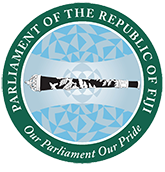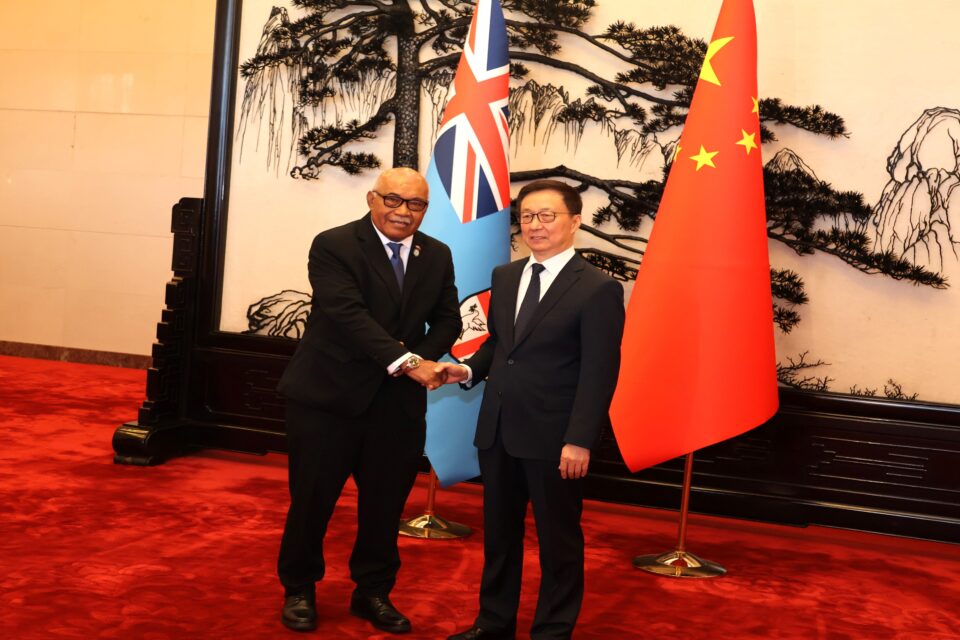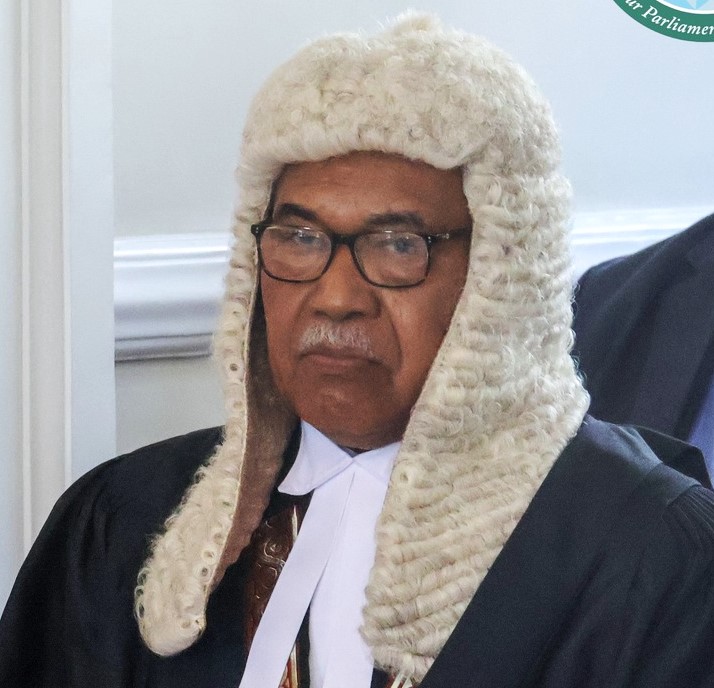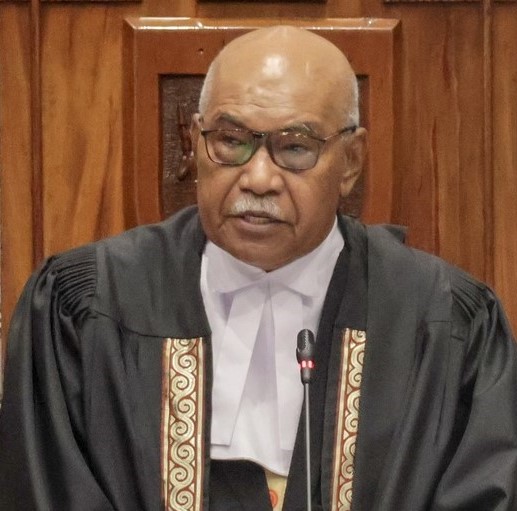International Day of Democracy – Message by the Speaker of Parliament, H.E Hon. Ratu Epeli Nailatikau
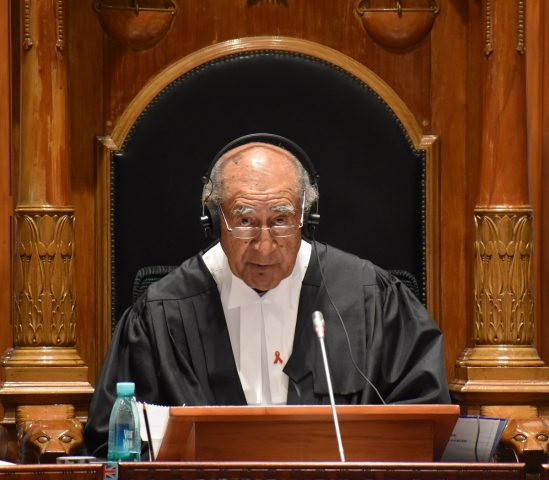
Greetings to all Fijians!
Today, we celebrate International Day of Democracy – a day of reflection about democracy and its principles. This important day was established through a resolution passed by the United Nations General Assembly in 2007 and, has been commemorated every year since 2008 on 15th September.
The United Nations clearly states, “International Day of Democracy provides an opportunity to review the state of democracy in the world. Democracy is as much a process as a goal, and only with the full participation of the international community, can the ideal of democracy be made into a reality.”
This Day provides an opportunity for the world to reflect on the principles of democracy and the state of democracy today. And it is also a time to encourage democratic movements and promote freedom, peace and respect for human rights.
It is also a good time to reflect on citizens’ participation in a Parliamentary representative democracy; to take stock of the many ways people can participate in decision-making processes and work to improve on areas that need to be improved.
This year is particularly special as we mark the 25th anniversary of the Inter-Parliamentary Union’s (IPU) Universal Declaration on Democracy. With the many countries becoming democracies in the 1990s, IPU member Parliaments (of which Fiji is one), issued the Universal Declaration on Democracy in 1997 in Cairo, Egypt.
At the time, it was designed to be an international standard to guide Governments, Parliaments and people through the many challenges to democracy around the world.
The principles of democracy include: citizen participation, equality, human rights, political tolerance, accountability, transparency, regular free and fair elections, rule of law, a multi-party system, separation of powers and fair representation. In recent times these have expanded to encompass inclusivity, gender equality and respect for persons with disabilities.
We often see democracy as a system of government where laws, policies, leadership and actions of a state are directly or indirectly scrutinised and decided by its citizens.
Democracy has become a universal value and Parliament is a central institution that embodies this value. The Parliamentary system is a governance system where the Executive (Government) acquires its legitimacy from its ability to have the support of the Legislature (Parliament) to which it is accountable.
Fiji is a sovereign democratic state that is founded on the values of good governance, including the limitation and separation of powers through the legislative, executive and judicial branches of Government. The authority and power to make laws for the state is vested in Parliament, which consists of the Members of Parliament and the President and is exercised through the enactment of Bills passed by Parliament and assented to by the President.
Parliamentary democracy is considered to be the best form of Government because in this system, the people can freely express their wishes and grievances as well as to encourage their elected representatives to do the same on the floor of the House. In Parliament, the party or those parties supporting each other holding the majority of seats in Parliament take up the executive branch of the Government. Their leader takes up the position of Prime Minister who then appoints his/her cabinet ministers who take charge of different Government departments. The executives – the Prime Minister and Ministers are accountable to Parliament, whereas Members of Parliament who are not Ministers question and hold them to account. The opportunities for scrutinizing the policies and administration of the Government are provided through the oversight work of the Standing Committees, during question time, in the review of legislation, debates and motions.
In addition, Members of Parliamentary Standing Committees have a further opportunity to scrutinize legislation and reports as an important part of the committee process.
Whilst undertaking its core functions, the Fijian Parliament is required to be representative, open and transparent, accessible, accountable and effective. These values are the pillars of the Fijian Parliamentary democracy, and as the central institution of democracy, this embodies the will of the people. Parliament carries the citizens’ expectations that democracy is truly responsive to their needs and helps to solve the most pressing problems that confront them in their daily lives.
The Fijian Parliament conducts its business transparently. The Parliament proceedings are open to the public and also televised on free-to-air TV via the Parliament Channel, and live-streamed on the Parliament’s Facebook page. The official report of Parliamentary proceedings (Hansard) is available on the Parliament’s website for the public. The Parliament, wherever possible, involves the public in its processes and this is mainly by the Parliamentary Standing Committees calling for submissions while reviewing Bills, reports, treaties and conventions, and petitions. Members of the public can contact any Member of Parliament to raise their concerns or views on any issues affecting them. The other hallmarks of accessibility include peoples’ rights to ask for action through petitions where even an individual can write and submit a petition through any Member of Parliament.
The Parliament is the representative of all Fijians. Members of Parliament are chosen by secret ballot in a free and fair election administered by the Electoral Commission, in accordance with the Constitution and the written laws governing elections. The election of Members of Parliament is by a multi-member open list system of proportional representation, under which each voter has one vote, with each vote being of equal value, on a single national electoral roll comprising all the registered voters.
We are in the election period where Fijians will soon be asked to exercise their right to vote for their representatives in Parliament.
Section 58 of the Constitution outlines how and when Parliament is to be dissolved. The Parliament will automatically dissolve on 26 November 2022 which is four years from the date of the first sitting of the current Parliament. However, the President can also dissolve Parliament upon the advice of the Prime Minister up to 6 months earlier, which could be anytime from 26 May 2022 onwards.
Whilst we await these processes to take place, Fijians should be ready to have their say on the membership of the next Parliament.
On this International Day of Democracy, I call on all Fijians to exercise their constitutional right to vote and elect leaders who will represent you wisely and effectively in Parliament.
Democracy is a never-ending process. It does not stop when you cast your vote at the national elections but continues on through your participation in the democratic or Parliamentary system.
There are many ways to participate in the Parliamentary processes. For instance, engaging with the work of the Standing Committees, who often go around the country or sit in Parliament to get the views of concerned citizens on a variety of issues on the Committees’ agenda. The Standing Committees provide access and space to Fijians to participate in: the review of new or amended draft laws; review of international treaties and conventions; oversight of Government ministries and statutory bodies; and inquiries into specific matters of national interest that Parliament has approved that they be looked into.
Fijians are also at liberty to come to Parliament to meet with Members of Parliament to raise an important matter with them, irrespective of who they have voted for.
My plea to all Fijians is to engage with Parliament and take advantage of the opportunities that are available whenever and wherever possible.
Citizen participation is one of the principles of democracy, therefore I urge you all to come forward and participate.
-ENDS-

